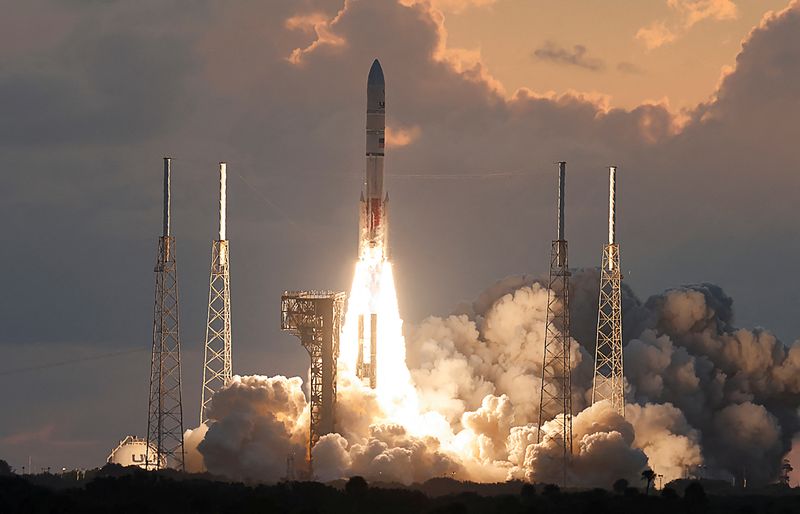By Karen Freifeld
(Reuters) -The Biden administration on Thursday eased export restrictions on U.S. commercial space companies to ship certain satellite and spacecraft-related items to allies and partners.
The changes are intended to make it easier for the growing U.S. commercial space industry to expand sales while also protecting national security and foreign policy interests.
U.S. space companies like Elon Musk's SpaceX, and large defense contractors with space units like Lockheed Martin (NYSE:LMT), L3Harris Technologies (NYSE:LHX) and Boeing (NYSE:BA), could benefit from the new rules, which were posted in the Federal Register on Thursday afternoon.
"As the diversity of commercial activity in space grows, these rules will reduce the burden for U.S. industry to continue innovating and leading in the space sector," Don Graves, deputy secretary of the Department of Commerce, said in a statement.
The updates will also add to the U.S.'s ability to "broaden and deepen international partnerships, to grow our economy and to collaborate on mutual space priorities," Graves said.
Certain items involving remote sensing spacecraft or space-based logistics assembly, and servicing spacecraft will no longer need licenses for shipment to Australia, Canada, and the United Kingdom, the Commerce Department said in the statement.
The rules could help the U.S. push ahead with the trilateral AUKUS security pact between Britain, the U.S. and Australia formed in 2021 to respond to China's growing power in the Indo-Pacific region. Part of the pact is focused on technology sharing.
Some less sensitive satellite and spacecraft parts and components will no longer require licenses for shipment to over 40 countries. The countries include Canada, Australia, Japan, South Korea and most of the European Union, a person familiar with the matter said.
In addition, the Commerce Department will do away with license requirements for the least sensitive items like electrical connectors for most of the world, but not countries of concern like Russia and China, the person said.
A proposed rule also was published regarding the transfer of jurisdiction of certain space-related defense articles from the State Department to the Commerce Department, making it easier to export them to close allies and partners.
The rules come after a proposed rulemaking nearly five years ago and a December 2023 National Space Council request.
After the 2019 notice came out, SpaceX urged the US to consider ways to "streamline export control regulations for U.S. commercial space industry to lower administrative burden, decrease regulatory compliance costs and increase exports thereby bolstering the U.S. space commercial sector and industrial base."

The easing is expected to help expand SpaceX’s footprint abroad as it develops Starship, the company’s reusable next-generation rocket.
SpaceX and officials from the Pentagon and Australia are discussing plans to test-land a Starship rocket off the coast of Australia and bring it ashore for recovery, Reuters reported in July. The Starship arrangement could open the door to a greater SpaceX presence in Australia.
